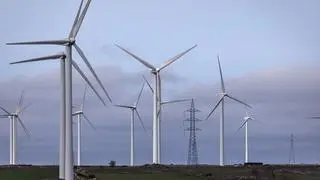In a first of its kind, NTPC has started using inland waterways to transport coal to its Farakka power station in West Bengal.
“The first imported coal consignment of 1,700 tonnes to Farakka started on Friday,” a company official told Business Line . Moving coal through waterways will help NTPC save nearly 15-20 per cent of the transportation cost through land.
Jindal ITF Ltd, which has been appointed as operator, which will unload and transport imported coal from the high seas to the Farakka plant. The company has created infrastructure from a transfer point mid sea to the NTPC coal stockyard.
The public sector power producer has entered into a tripartite agreement with Inland Waterways Authority of India and Jindal ITF for this mechanism. About 3 million tonnes per annum (mtpa) of coal will be transported to the Farakka plant through inland waterways for seven years. Kolkata Port Trust has approved a wharfage (a fee charged by ports for the cargo handled) charge on coal for the period. Jindal ITF has procured 19 barges (flat-bottomed boats used for river transport of heavy goods) with 2,000 million tonnes capacity for the job. A conveyor belt will take the coal from the jetty to the coal stockyard.
After Farakka, NTPC is planning to set up a similar mechanism for its upcoming power plant at Barh, Bihar, where it will commission the first 660 MW unit this fiscal. The entire project will have a capacity of 3,300 MW, and will require 16 million tonnes of coal a year. Domestic coal linkage for the Barh station has been sealed from the Amrapali block of North Karanpura, which will be transported through rail. However, there is a proposal to blend high-grade imported coal with domestic fuel, which will require the import of about 3 million tonnes a year.
This imported coal is likely to be sourced from Indonesia. It will be received at Haldia and then transported through waterways to Barh. The process may cost up to Rs 1,200 crore, sources said.






Comments
Comments have to be in English, and in full sentences. They cannot be abusive or personal. Please abide by our community guidelines for posting your comments.
We have migrated to a new commenting platform. If you are already a registered user of TheHindu Businessline and logged in, you may continue to engage with our articles. If you do not have an account please register and login to post comments. Users can access their older comments by logging into their accounts on Vuukle.